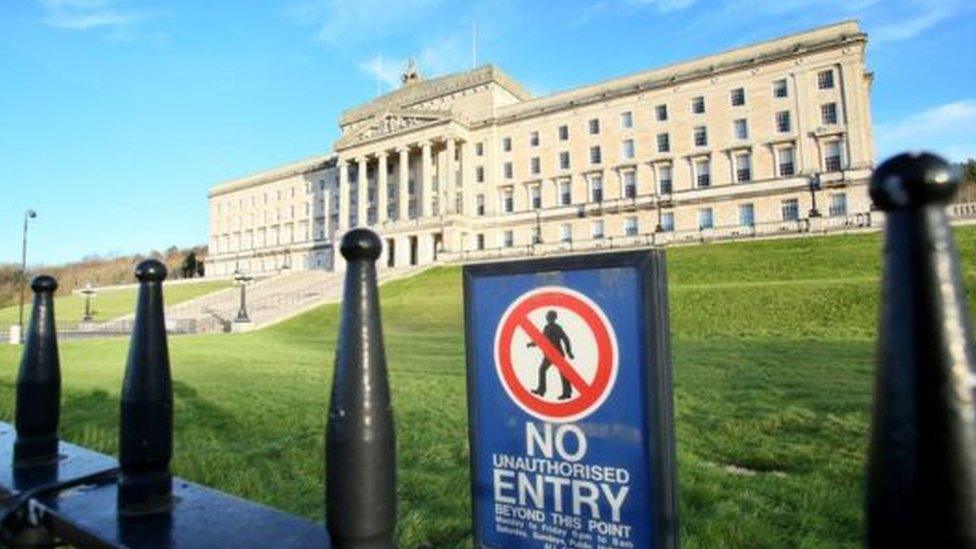Karen Bradley: Support for new talks after local elections
- Published
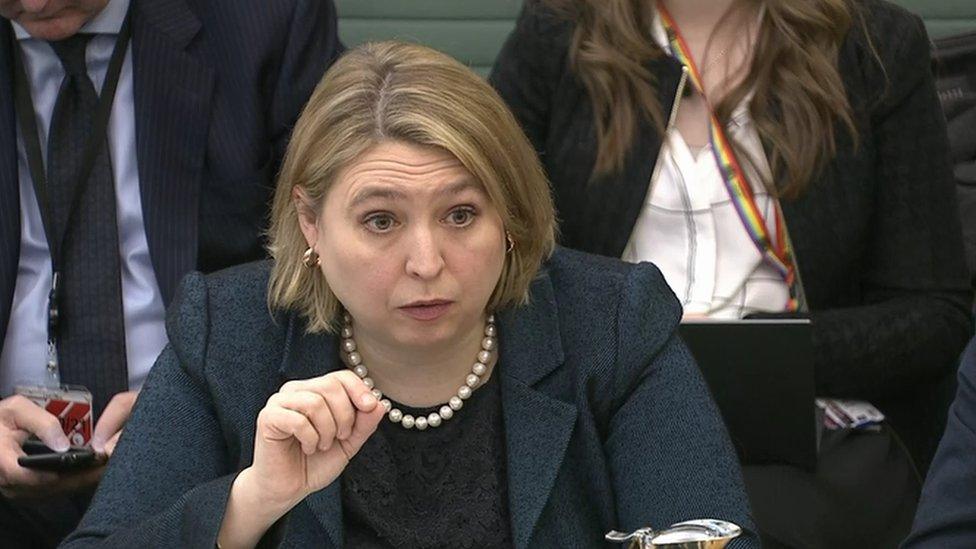
Karen Bradley has said she would like to see a "short focussed set of talks"
The NI secretary has said she would like to see a new talks process after the local government elections in May.
Karen Bradley said she would like to see a "short, focused set of talks at that point".
However, she said the atmosphere needed to be right before cross-party discussions could begin.
Mrs Bradley said she was waiting to "find the point at which I believe the conditions are right" for talks to go ahead.
The secretary of state was giving evidence to the Northern Ireland Affairs Committee in Westminster, where she faced questions on numerous issues.
Mrs Bradley's appearance comes after she had to apologise earlier in March for remarks that deaths caused by the security forces in Northern Ireland were "not crimes".
She later told the House of Commons she had said "the wrong thing".
At the time, a number of victims groups and politicians called for her resignation.
'Settled in'
During Wednesday's Westminster hearing, several MPs asked questions about Mrs Bradley's handling of her portfolio.
Labour MP Kate Hoey suggested Mrs Bradley had not "settled in" and said some people felt it was time she was replaced.
North Down MP Lady Hermon asked Karen Bradley if she still enjoyed her job and the secretary of state said she did.
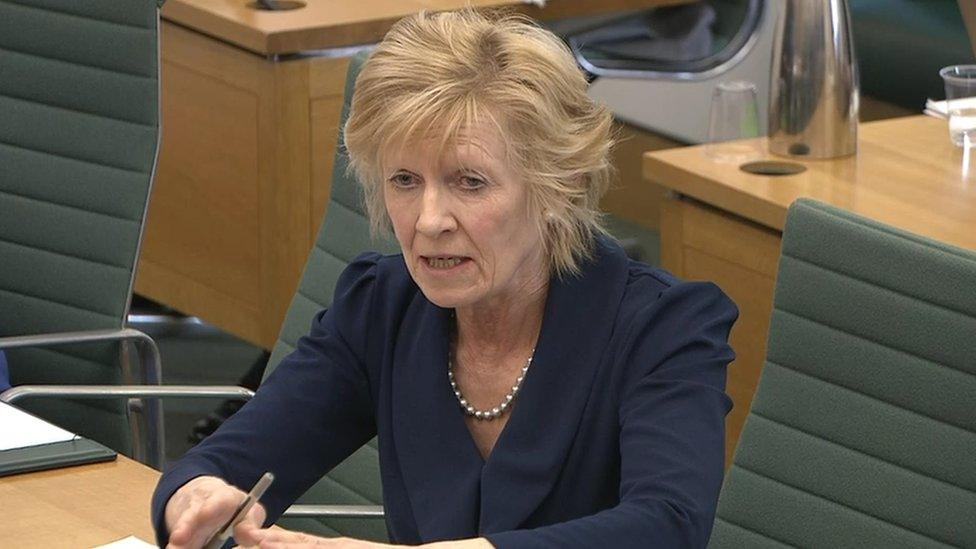
Lady Sylvia Hermon asked the secretary of state if she was still enjoying her job
Lady Hermon also raised the issue of MLA pay and said that £12m has been paid to assembly members since the collapse of devolution in 2017.
Following an investigation into MLA salaries, assembly members have seen their wages reduced in two pay cuts.
Pay was initially cut last year and again in January 2019.
It means MLAs now earn £35,888.
'No comment' on NIO papers
Responding to Lady Hermon, Mrs Bradley promised to consider whether further work was needed on the issue of pay cuts.
The secretary of state also faced criticism from North Antrim MP Ian Paisley.
He was concerned about remarks by the prime minister saying that Northern Ireland was not prepared for a no-deal Brexit.
Mr Paisley wanted to know if papers existed in the Northern Ireland Office that confirmed that Northern Ireland was not prepared on legal, security and political grounds.
The secretary of state said she would "not comment " on Northern Ireland Office papers.

Why is Northern Ireland without a government?
Northern Ireland has been without a government since January 2017, when the governing parties - the DUP and Sinn Féin - split in a bitter row.
Martin McGuinness, the then deputy first minister, resigned in protest of the handling of the botched Renewable Heat Incentive (RHI) scheme.
Since then, the two parties have remained far apart over crucial issues such as Sinn Féin's desire for legislation to give official status to the Irish language in Northern Ireland, rights for same-sex couples to marry and Troubles legacy issues.
Several rounds of talks to restore government at Stormont have, so far, failed while the UK government has resisted calls to institute direct rule from Westminster.

- Published20 March 2019
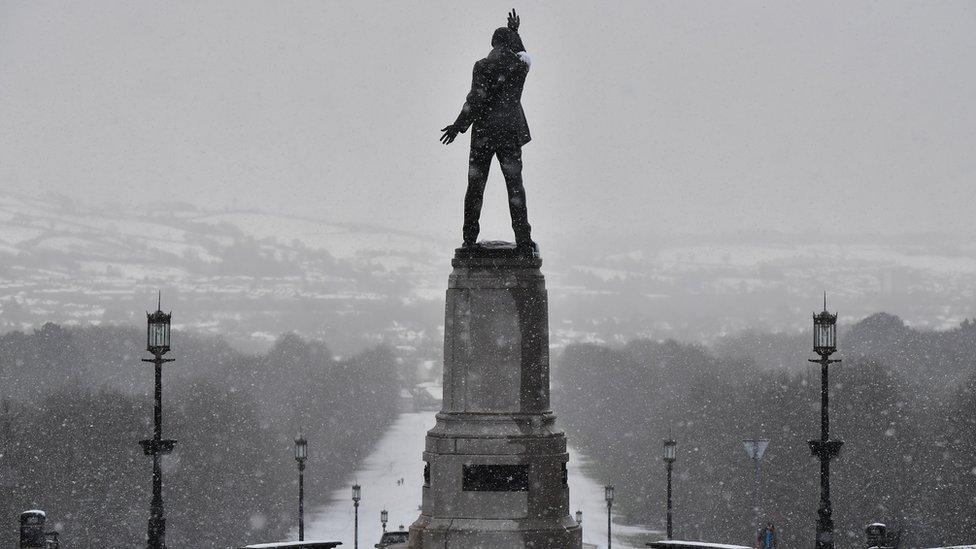
- Published21 February 2019
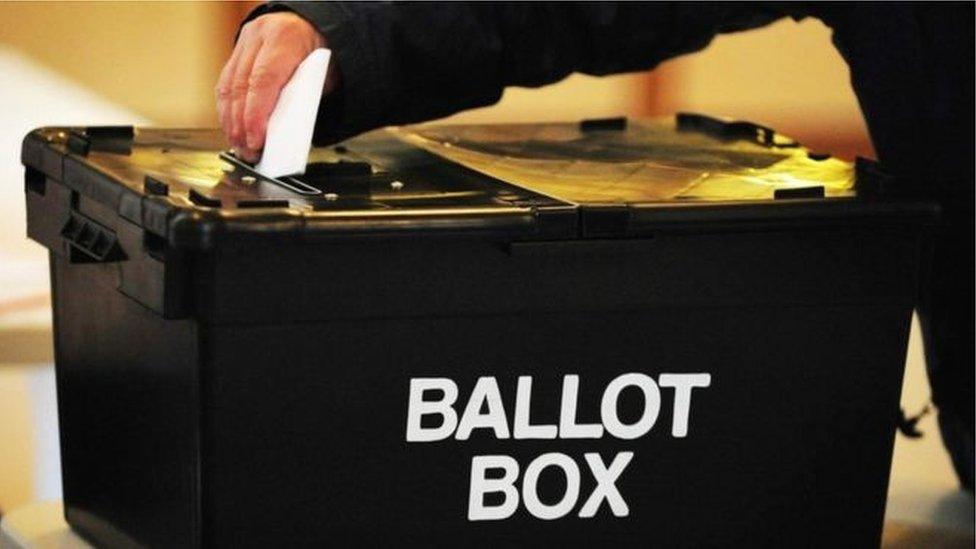
- Published16 February 2019
